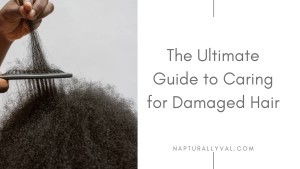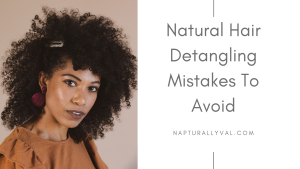Hey Curlfriends, Let’s talk wigs. Specifically, glueless wigs those gorgeous lifesavers that let you switch up your look in seconds without committing to glue, tension, or stress. If you’ve ever asked yourself, “Are glueless wigs really better for natural hair protection?” then girl, you’re in the right place.
As your type 4C bestie who’s on a mission to grow, protect, and celebrate our coils, I haven’t worn any glueless wigs yet but they are in my to do list. I’ve had from fellow girlies that they are a game-changer, but only if you know how to choose the right one and care for your hair underneath. So, let’s break this all the way down.
What Are Glueless Wigs?
A glueless wig is exactly what it sounds like a wig that doesn’t require glue, gel, or adhesives to stay secure. Instead, it’s designed with features like:
- Adjustable straps
- Elastic bands
- Wig combs or clips
- Pre-plucked hairlines (sometimes with lace)
These features make them super easy to wear, remove, and reuse without all the stickiness or damage that glue can cause.
So… Are Glueless Wigs Better for Hair Protection?
In many cases, yes. Especially for us 4C girlies who want a break from manipulation but still want to look bomb. But like all things natural hair, it comes down to how you wear it, how you care for your hair underneath, and the quality of the wig itself.
Let’s explore the pros and cons to help you decide if this style is for you.
Pros of Glueless Wigs
1. No Glue = No Hairline Damage
Glue and adhesives can weaken your edges and hairline over time, especially with frequent installs. Glueless wigs eliminate that risk completely, making them a much gentler option for protecting your crown.
2. Beginner-Friendly
You don’t need to be a hairstylist to slay a glueless unit. Most are throw-on-and-go, and many come pre-styled and pre-plucked. Perfect for those “I want to look cute but I’m not fighting with a frontal” days.
3. Protective Styling Without Commitment
You can wear them during the day and remove them at night to let your scalp breathe, moisturize your real hair, and avoid the tugging tension that sometimes comes with sew-ins or glued wigs.
4. Customizable and Reusable
Want to change your look every week? Glueless wigs let you switch it up often without damage or stress to your strands.
Cons of Glueless Wigs
1. Not Always As Secure Without Proper Fit
If your glueless wig doesn’t fit well or lacks strong straps and combs, it may shift or slide, especially if you’re active or wearing it for long hours. So, fit matters.
2. May Still Cause Friction or Dryness
If you don’t properly protect your natural hair underneath, especially your edges and nape, the wig cap or combs can cause friction or dryness over time.
3. Some Require Styling Out the Box
Not all glueless wigs are 100% ready to wear. You might still need to do a little plucking, tinting, or flat-ironing to make it look natural.

How to Install a Glueless Wig (The Right Way)
Here’s how to slay your glueless wig without damaging your natural hair:
- Start with Clean, Moisturized Hair
Moisturize your scalp and hairline with a lightweight leave-in like Carol’s Daughter Black Vanilla Leave In Conditioner and seal with oil like Jamaican Black Castor Oil. - Braid or Cornrow Your Hair Down
Flat braids or cornrows help your wig lay flat and minimize bulk. You can also wear a wig cap to protect your strands from friction. - Adjust the Wig Straps for a Secure Fit
Most glueless wigs come with adjustable bands or elastic straps. Make sure the unit sits snug, especially around your edges. - Lay the Edges (Optional)
If you like a natural hairline look, use Ebin 24-Hour Edge Tamer to lay your baby hairs. It offers strong hold without flaking. - Tuck In the Combs Carefully
If your wig has combs, gently slide them into your braids, not too tight. You want security, not tension.
How to Care for Your Hair Underneath
Protective styling only works if you’re actually protecting your real hair underneath. So here’s your maintenance plan:
- Moisturize your scalp 2–3x a week with a lightweight oil like Carol’s Daughter Goddess Strength 7 Oil Blend Scalp and Hair Oil .
- Wash and deep condition your real hair every 2–3 weeks. Use a nourishing mask like TGIN Honey Miracle Hair Mask.
- Avoid sleeping with the wig on too often. Let your hair breathe overnight in a satin bonnet or on a satin pillowcase.
How to Care for Your Glueless Wig
A good wig can last a year or more if you take care of it:
- Wash it every 2–4 weeks depending on product buildup
- Use a sulfate-free shampoo like SheaMoisture Wig & Weave Residue Remover Shampoo
- Air-dry your unit on a mannequin head to preserve the shape
- Store in a satin or silk bag when not in use

Best Glueless Wigs for 4C Girlies
1. Kinky Curly Glueless Lace Front Wig (Human Hair)
This one is perfect if you want a texture that mimics your natural 4C hair. It’s full, bouncy, and blends beautifully with natural edges if you want to leave some out.
Why it’s great:
- Comes pre-plucked
- Adjustable straps and combs
- Natural density and realistic curl pattern
2. Afro Kinky Curly U-Part Glueless Wig
This one is a lifesaver when you want your natural leave-out to blend in. It’s perfect for quick installs and allows your scalp to breathe.
Why it’s great:
- No lace, no glue
- Easy to clip in and out
- Looks just like a blowout or twist-out
3. Bob Style Glueless Kinky Curly Lace Wig
If you’re into shorter styles, this curly bob is a vibe. It’s low-maintenance and works well for summer or daily wear.
Why it’s great:
- Pre-styled
- Bouncy and defined curls
- Beginner-friendly with adjustable fit
Final Verdict: Are Glueless Wigs Worth It?
Sis, if you’re trying to protect your hair, skip the glue, and still slay, glueless wigs are definitely worth it. Just make sure to invest in a high-quality unit, moisturize and care for your natural hair underneath, and switch things up when needed to avoid tension or buildup.
Think of it as freedom in a wig; no salon appointments, no damage, just you and your crown doing its thing.
Let your wig enhance your beauty, not hide or hurt your real hair.




